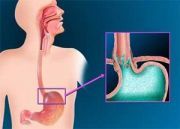Article
Group Adds Quality Measures for Appropriate Endoscopic Therapy for Stigmata of Peptic Ulcer Disease Bleeding
New measures enhance practices' ability to track and improve performance and quality.

GIQuIC (GI Quality Improvement Consortium, Ltd.), a non-profit collaboration of the American College of Gastroenterology (ACG) and the American Society for Gastrointestinal Endoscopy (ASGE), describes itself as a “quality benchmarking registry that is raising the bar on efficiency, effectiveness, and reliability.”
The GIQuIC has several goals, including establishing a national GI endoscopy data repository for “storage and maintenance of Endoscopy Quality Measures for GI Endoscopists who want to document and improve their endoscopy performance,” developing Endoscopy Quality Indicators to address identified gaps in gastrointestinal endoscopy care, and collecting data that can be used by researchers conducting clinical outcomes studies and quality initiatives.
The GIQuIC recently announced that it has expanded its endoscopic quality registry to include upper GI endoscopy and related quality measures. The expanded registry includes the following new quality measures:
- Appropriate specimen acquisition in Barrett’s esophagus
- Appropriate management of new diagnoses of bleeding esophageal varices
- Appropriate endoscopic therapy for stigmata of peptic ulcer disease bleeding
- Appropriate anticoagulation management
- Appropriate antibiotic prophylaxis
GIQuIC President Irving M. Pike, MD, said, “GIQuIC is a business solution for efficiently managing data, streamlining operations and truly transforming gastroenterology practice. Practices currently participating in GIQuIC are using it as a way to market their services to patients, demonstrating to patients their commitment to quality care as well as how they rate per national benchmarks.”
By participating in the GIQuIC, practices can “obtain reports on demand that enable them to compare their performance to other groups, facilities, geographic regions, etc. benchmarked against a variety of standards.” By measuring performance and quality against their peers, participating practices can improve clinical and patients outcomes, support quality improvement initiatives, and “set the stage for improved performance reimbursements from Medicare and insurance companies.”




